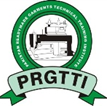Apparel Industrial Engineering Course
Eligibility & Duration:
The Apparel Industrial Engineering course is designed for individuals interested in optimizing and improving manufacturing processes within the apparel industry. Eligibility typically includes a high school diploma or equivalent qualification. While prior knowledge of industrial engineering or textiles can be advantageous, it is not always a strict requirement.
The duration of the course varies depending on the institution and the depth of the program. Typically, it ranges from one to two years for diploma programs, and up to four years for bachelor’s degree programs.
Awarding Body:
- Punjab Board of Techncial Education (PBTE)
- Textile Commissioner’s Organization (TCO)
Course Objectives:
The primary objectives of the Apparel Industrial Engineering course are:
- Industrial Engineering Knowledge: To provide students with a strong foundation in industrial engineering principles and practices as applied to the apparel manufacturing sector.
- Process Optimization: To teach students how to analyze and optimize production processes for efficiency and cost-effectiveness.
- Quality Management: To equip students with skills in quality control and assurance, ensuring the production of high-quality garments.
- Resource Allocation: To train students in effectively managing resources such as labor, machinery, and materials.
- Technology Integration: To familiarize students with the integration of technology and automation in apparel manufacturing.
Course Details:
The curriculum of the Apparel Industrial Engineering course may encompass a combination of theoretical and practical subjects, including:
- Industrial Engineering Principles: Understanding the fundamentals of industrial engineering and its application in apparel manufacturing.
- Production Process Analysis: Analyzing apparel manufacturing processes for efficiency and identifying areas for improvement.
- Quality Control Techniques: Implementing quality control measures and ensuring adherence to quality standards.
- Workplace Safety: Promoting safe working conditions in apparel manufacturing facilities.
- Production Planning and Scheduling: Developing strategies for effective production planning and resource allocation.
- Lean Manufacturing: Learning about lean principles to reduce waste and enhance productivity.
- Automation and Technology: Exploring the use of automation, robotics, and digital technologies in the apparel industry.
- Case Studies: Analyzing real-world examples of successful industrial engineering practices in apparel manufacturing.
Career Prospects:
- Graduates of the Apparel Industrial Engineering course can explore various career opportunities in the apparel manufacturing and supply chain management sector, including:
- Industrial Engineer: Overseeing production processes, optimizing workflow, and improving efficiency.
- Quality Assurance Manager: Ensuring that garments meet quality standards and implementing quality improvement processes.
- Production Planner: Creating production schedules and managing resources for timely and cost-effective production.
- Lean Manufacturing Specialist: Implementing lean principles to reduce waste and enhance productivity.
- Technology Integration Specialist: Integrating automation and digital technologies into apparel manufacturing processes.
Tuition Fee & Charges:
To inquire about fees or free programs at the Pakistan Readymade Garments Technical Training Institute (PRGTTI) in Lahore, you can contact office at the following phone numbers:
Phone: 042-99230756-57
Feel free to call these numbers to get the information you need about program fees or any available free programs offered by PRGTTI. PRGTTI staff will be able to provide you with the details you require regarding the cost of courses or any subsidized or free training options.


